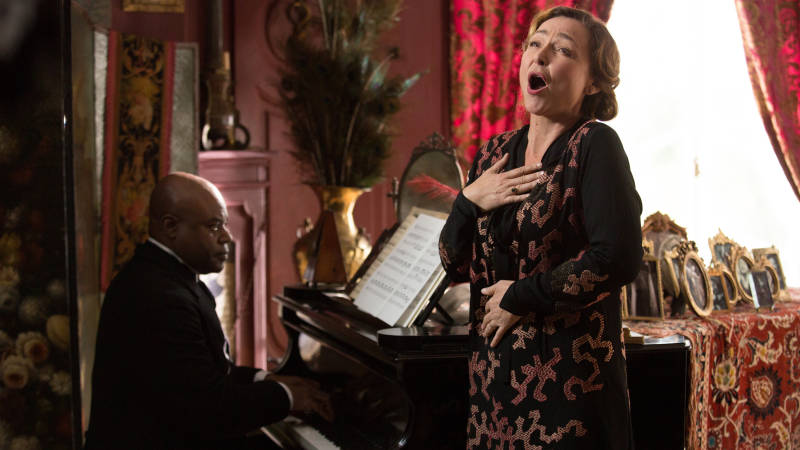Imagine the worst opera singer ever. Now imagine that she’s determined to perform in public. That’s the premise of an award-winning French satire that’s based on a true story. It’s called Marguerite, and it follows a middle-aged socialite by the same name.
Marguerite has very little to do. While the roaring 1920s roar elsewhere and her husband spends all his time with a mistress, Marguerite sits in her Downton Abbey-style mansion outside Paris surrendering her soul to music.
She adores opera, and is wealthy enough that she can sponsor musical recitals for charity with young guest singers. These are invitation-only affairs where her wealthy friends reward her charitable generosity by being charitable about the way she ends the concerts — with her own, shall we say, unique musical stylings. Stylings with no sense of pitch, rhythm or, for that matter, talent.
Marguerite is surrounded by servants who applaud and friends who are polite. (Her husband usually claims car trouble kept him away.) But I hear your question: How could she not know? Wouldn’t someone tell her? Here’s how it works: After one recital, when a young singer is ushered into Marguerite’s presence to say thank you, Marguerite looks up — vulnerable and sweet — and says, “You heard me miss all my high notes.” The young performer, not wishing to hurt or be impolite, says, “No, it sounded fine.” Self-knowledge will have to wait.


